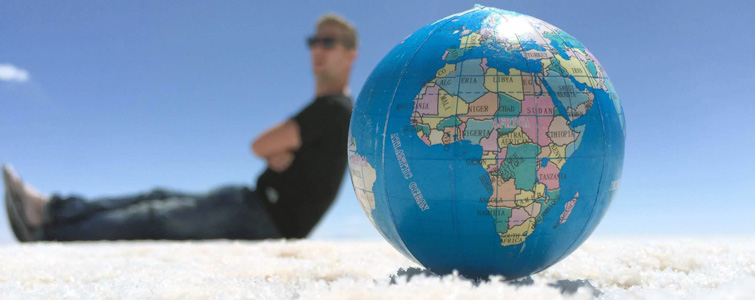Photo by Aaron Doucett on Unsplash
Road trips are meant to be filled with excitement, adventure, and the freedom of the open road. Whether you’re cruising along a scenic highway or heading to visit friends across the country, the journey itself can be one of the best parts of your trip. But no matter how careful you are, accidents can still happen, and they’re especially stressful when you’re far from home. Knowing what steps to take can make all the difference, both for your safety and for making sure you handle things the right way.
This guide will walk you through exactly what to do if you find yourself in a car accident during your road trip, so you can be prepared and protect yourself, your passengers, and your plans.
Stay Calm and Prioritize Safety
The first moments after an accident can feel chaotic. Your heart might be racing, and it can be hard to think clearly. The most important thing you can do is to take a deep breath and focus on staying calm. Check yourself and your passengers for injuries right away. If anyone is hurt, call emergency services immediately. If your car is in a dangerous spot, like the middle of the road, and it’s safe to do so, move it to the shoulder or another safer location. Turn on your hazard lights to alert other drivers.
If it’s not possible to move the car, stay inside with your seatbelt fastened until help arrives. Exiting the vehicle on a busy highway can be even more dangerous.
Call for Help Right Away
Once you’ve made sure everyone is as safe as possible, call 911 or the local emergency number. Tell the dispatcher where you are as accurately as you can. If you’re unsure of your exact location, look for road signs, mile markers, or nearby landmarks. Some smartphones can provide GPS coordinates that you can share with emergency services.
Explain what happened and let them know if anyone is injured so they can send the appropriate help. Stay on the line until the dispatcher tells you it’s okay to hang up.
Stay at the Scene and Document Everything
After calling for help, remain at the scene until law enforcement arrives and tells you it’s okay to leave. Leaving the scene of an accident, especially if there are injuries or significant damage, can lead to legal trouble.
While you wait, start gathering information. Exchange names, phone numbers, addresses, driver’s license numbers, and insurance details with the other driver or drivers involved. If there are multiple vehicles, make sure you get information from everyone. Avoid admitting fault or placing blame at the scene. Simply stick to the facts when you talk to the other driver and to police officers.
Use your phone to take clear photos of the damage to all vehicles involved, the license plates, the surrounding area, skid marks, traffic signs, and anything else that might be relevant. If there are visible injuries, photograph them too, but remember to be respectful of people’s privacy.
Write down important details, including the time and date, weather conditions, road conditions, and any unusual circumstances you noticed before the crash, such as a car swerving or debris on the road.
Talk to Witnesses
If anyone witnessed the accident, politely ask if they would be willing to share what they saw. Collect their names and contact information in case your insurance company or attorney needs a statement later. Witnesses can be extremely helpful in resolving disputes about what actually happened.
Notify Your Insurance Company
Photo by Gabrielle Henderson on Unsplash
As soon as you can safely do so, contact your insurance company. Many insurers have 24-hour claims lines, and some offer mobile apps where you can start the claims process right from your phone. Provide them with all the information you collected, including photos, the police report number, and contact details for the other driver. Be honest and detailed when describing what happened.
Your insurance company will guide you on next steps, such as arranging an inspection of your car or helping you get a rental vehicle.
Seek Medical Attention Even if You Feel Fine
Adrenaline and shock can mask pain after an accident, so even if you think you’re uninjured, it’s a good idea to see a doctor as soon as possible. Some injuries, like whiplash or concussions, might not show symptoms right away but can become serious if left untreated.
Document all medical visits, diagnoses, treatments, and expenses. If you need to make an insurance claim or take legal action later, having clear records of your injuries and medical costs will be important.
Arrange for Your Car and Adjust Your Travel Plans
Depending on the extent of the damage, your car may need to be towed to a repair shop. If you’re in an unfamiliar area, ask the police or your insurance company for recommendations on reputable tow services and auto repair shops. Many insurance policies include roadside assistance, so check your coverage to see if you can get help with towing or temporary transportation.
If your car is undriveable and you need a rental to continue your trip, your insurance policy might cover rental costs. If not, you’ll need to decide whether to rent a car on your own or make arrangements to return home.
Take some time to consider whether you feel comfortable continuing your road trip. Accidents can be emotionally draining, and it might be best to take a break, rest, or head home instead of pushing yourself to keep going right away.
Take Care of Yourself Emotionally
A car accident can be a traumatic experience, especially if it happens far from the comfort of your home. It’s normal to feel shaken, anxious, or even guilty after a crash. Give yourself time to process what happened. Talk to friends or family members about your feelings, and don’t hesitate to seek help from a counselor or therapist if you’re struggling to cope.
If you’re traveling with children, check in with them, too. Kids might not fully understand what happened and could be scared or confused. Reassure them that they’re safe and answer their questions in an age-appropriate way.
Keep Records and Follow Up
After you’ve left the scene and things have calmed down, keep all paperwork related to the accident in one place. This includes the police report, medical records, repair estimates, insurance correspondence, and receipts for expenses like towing, lodging, or alternate transportation. These documents can be essential if you need to resolve disputes with insurance companies or seek compensation for your losses.
Follow up with your insurance company regularly to make sure your claim is progressing. Stay organized by taking notes during calls and saving copies of emails.
Know Your Legal Rights
Depending on the circumstances of your accident, you might benefit from consulting a car accident attorney, especially if you or a passenger were seriously injured, or if there are disputes about who was at fault. If your accident happened in Illinois, you could reach out to experienced Car Accident Lawyers in Peoria who understand local laws and can help guide you through the process. An attorney can help you understand your rights, negotiate with insurance companies, and ensure you receive fair compensation.
Remember, different states have different laws about fault, compensation, and insurance requirements. If your accident happened out of state, your insurance should still apply, but it’s worth checking with your provider to clarify any differences.
Conclusion
No one wants to think about the possibility of a car accident while planning a road trip. But being prepared for the unexpected can help you stay calm and make smart decisions if it happens. Focus first on safety, get help quickly, gather as much information as you can, and don’t rush yourself back on the road if you’re not ready. Taking these steps can protect your health, your finances, and your peace of mind.
The road will still be there when you’re ready, and by handling an accident carefully, you can get back to enjoying your journey with confidence. Wherever your accident takes place, having a trusted car accident lawyer on your side can make a stressful situation easier to handle.
Safe travels, and remember: preparation is the best way to keep your adventures memorable for all the right reasons.
Remember, never travel without travel insurance! And never overpay for travel insurance!
I use HeyMondo. You get INSTANT quotes. Super cheap, they actually pay out, AND they cover almost everywhere, where most insurance companies don't (even places like Central African Republic etc!). You can sign-up here. PS You even get 5% off if you use MY LINK! You can even sign up if you're already overseas and traveling, pretty cool.
Also, if you want to start a blog...I CAN HELP YOU!
Also, if you want to start a blog, and start to change your life, I'd love to help you! Email me on johnny@onestep4ward.com. In the meantime, check out my super easy blog post on how to start a travel blog in under 30 minutes, here! And if you just want to get cracking, use BlueHost at a discount, through me.
Also, (if you're like me, and awful with tech-stuff) email me and my team can get a blog up and running for you, designed and everything, for $699 - email johnny@onestep4ward.com to get started.
Do you work remotely? Are you a digital nomad/blogger etc? You need to be insured too.
I use SafetyWing for my digital nomad insurance. It covers me while I live overseas. It's just $10 a week, and it's amazing! No upfront fees, you just pay week by week, and you can sign up just for a week if you want, then switch it off and on whenever. You can read my review here, and you can sign-up here!













 As you know, blogging changed my life. I left Ireland broke, with no plan, with just a one-way ticket to Thailand
and no money. Since then, I started a blog, then a digital media company, I've made
more than $1,500,000 USD, bought 4 properties and visited (almost) every country in the world. And I did it all from my laptop as I
travel the world and live my dream. I talk about how I did it, and how you can do it too, in my COMPLETELY FREE
Ebook, all 20,000
words or so. Just finish the process by putting in your email below and I'll mail it right out to you immediately. No spam ever too, I promise!
As you know, blogging changed my life. I left Ireland broke, with no plan, with just a one-way ticket to Thailand
and no money. Since then, I started a blog, then a digital media company, I've made
more than $1,500,000 USD, bought 4 properties and visited (almost) every country in the world. And I did it all from my laptop as I
travel the world and live my dream. I talk about how I did it, and how you can do it too, in my COMPLETELY FREE
Ebook, all 20,000
words or so. Just finish the process by putting in your email below and I'll mail it right out to you immediately. No spam ever too, I promise!
